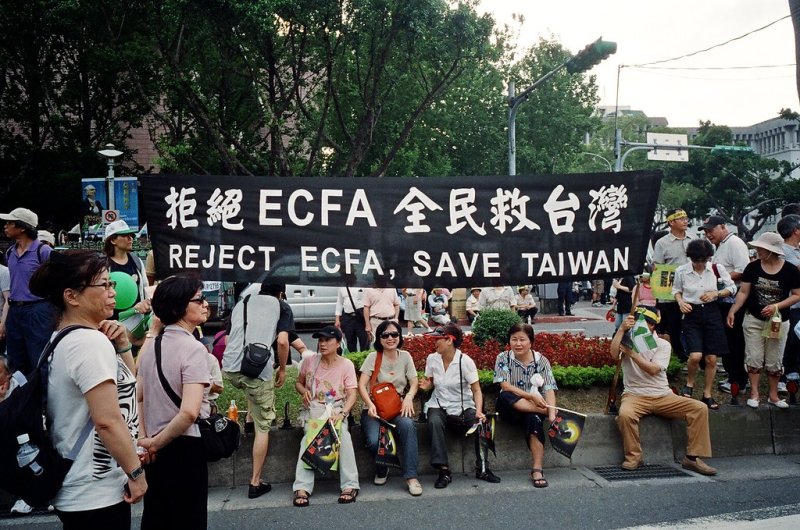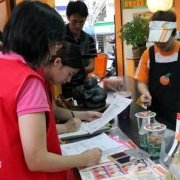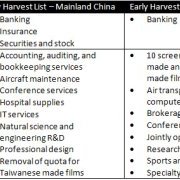
In early 2009, the Ma administration in Taipei and the Chinese government in Beijing began seriously discussing the possibility of signing a free trade agreement between the two. The stakes are quite large and so is the controversy around any such deal. Ever since 1949, when nationalists fled the mainland, China considers Taiwan a breakaway province that should fall under Beijing’s rule. Taiwan, on the other hand, has been trying to build and maintain its autonomy as a sovereign democratic state. Military tensions have surrounded this antagonistic relationship for 60 years, while China has been quite successful in asserting its "one China" policy among the world’s governments and alienating Taiwan diplomatically.
The new urge to sign an FTA comes after the nationalists lost power in Taiwan’s 2008 elections. China is, in fact, Taiwan’s top trading partner. Taiwanese businesses have built up strong investments in the mainland and the island’s political leadership is particularly concerned about losing economic strength in Asia once the China-ASEAN FTA starts coming into force in 2010.
The big question is whether a China-Taiwan FTA would trigger the start of Taiwan’s transition toward effective economic and political control by Beijing ("reunification"). In this regard, people have even been fighting over the possible name of the FTA. Taiwanese opposition forces insist that it should not be called a Comprehensive Economic Partnership Agreement, as originally proposed, because that is what China’s FTAs with Macao and Hong Kong are called. (Therefore, calling it a CEPA would insinuate that Taiwan has the same political status as these two special administrative regions of China.)
In June 2010, the governments of China and Taiwan signed an Economic Cooperation Framework Agreement (ECFA) which took effect in September 2010. The two governments intend to complete negotiations under this agreement by 2014. There have been major protests and much criticism of the deal in Taiwan.
last update: May 2012
Photo: WaDaNaBe / CC BY-NC-SA 2.0







